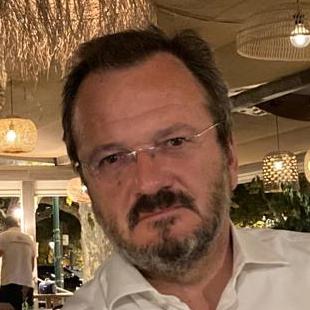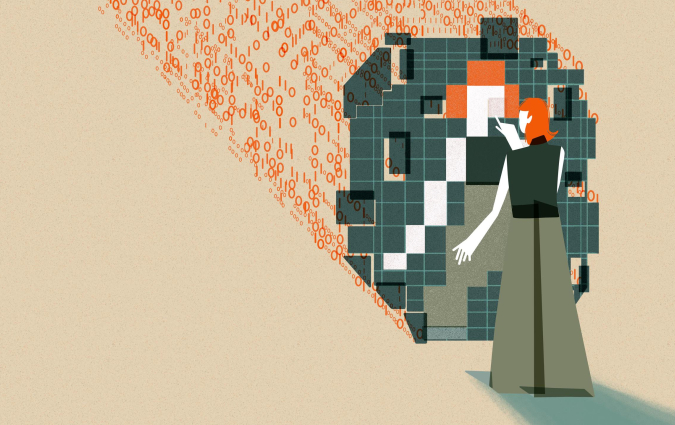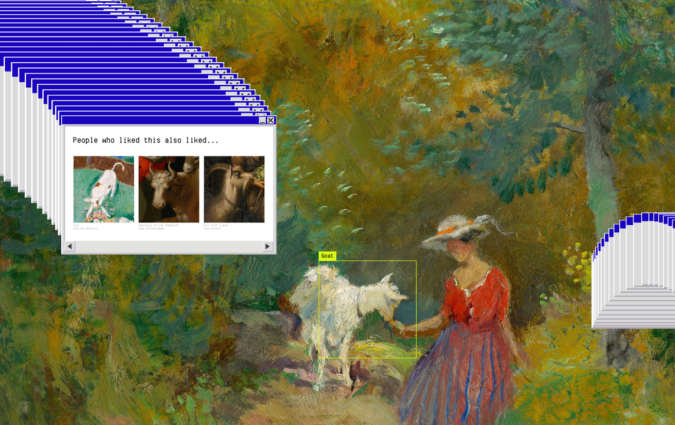How to cover the conclave: insights on the pope’s election from one of the world's leading experts

Cardinals entering the Sistine Chapel to begin the conclave in order to elect a successor to Pope Benedict on 12 March 12 2013. REUTERS/Osservatore Romano
The death of Pope Francis set off a series of events attracting the attention of the global news media. First was the pope’s funeral, and next week begins the conclave, the election of the next pope by the College of Cardinals, a group of the most senior clergy in the Church.
The election of a new pope is couched in drama. Cardinals are locked into the Sistine Chapel and cast their ballots under Michelangelo’s frescoes. Their only communication with the outside world comes in the form of plumes of smoke after each scrutiny: black if no choice is made, white to signal that a new pope has been elected.
Newspapers and broadcasters worldwide have sent thousands of reporters to cover the event. But only a small group of journalists – the so-called vaticanisti – report on the Vatican every day and are used to the practices and language of an institution often reluctant to open to the outside world.
One of the most respected and experienced vaticanisti is Gian Guido Vecchi, the Vatican reporter for Il Corriere della Sera, one of the top newspapers in Italy. From the Vatican’s St Peter’s Square, Vecchi spoke to me about his job and offered tips for any outsiders covering the conclave. We discussed how reporting on the Vatican differs from other beats, and what factors may influence this year’s election. The conversation, originally held in Italian, has been translated and lightly edited for clarity and length.
Q. The Vatican appears mysterious and closed off to the outside world. How can journalists begin to explain a conclave to our audiences?
A. We’re talking about a religion with more than 2,000 years of history and a type of election that is eight centuries old, so there is a lot of history behind it. First of all, it’s important to study history: to look at previous conclaves, to understand what happened in the past. This is not because history necessarily repeats itself, but because it at least makes you understand certain things.
You can’t approach the election of a pope in the same way as you approach a political election. The patterns are just different.

Q. However, some coverage presents the conclave in similar terms, describing ‘blocks’ of cardinals, and using language like ‘conservative’ or ‘progressive’ to describe them. Is this an oversimplification?
A. The dynamics are more complex. There is no single religious institution that is more international and more cosmopolitan than the conclave: 71 countries are represented. There are many powerful countries but also small ones, countries at the centre of international politics and countries on the periphery. The conclave is shaped by many differences: geographical, cultural. There is a risk in the West to keep in mind only Western priorities.
At a recent synod [a meeting of Catholics organised by the pope], there was a discussion about the possibility of granting communion to those who’ve divorced and remarried. On the way out, I met an African bishop who considered this issue something very remote. But it was very important for some of his colleagues in Europe. He said to me, “Actually, I have a problem with polygamy in my country. If someone with three wives says he wants to become Catholic, what do I do?” This thing that was so important in Europe touched him very little.
One of the characteristics that the next pope must have is international openness, and perhaps international experience.
Q. News organisations are publishing so many lists of frontrunners. Is it really possible to have a good idea of who the next pope will be?
A. It is always very difficult to make predictions during a conclave, precisely because it tends to escape the rules. In Italy we say, “Whoever enters the conclave as pope exits as a cardinal,” meaning that the favourites are never elected. But it is also true that it has not always been this way. For example, in the 20th century, the favourite candidate won twice. It happened with Pius XII in 1939 and with Paul VI in 1963. So there are no rules.
Q. Why are some candidates presumed to be frontrunners?
A. By deduction. We have a conclave with 133 electors. Many of these cardinals have never seen each other before. They are getting to know each other now.
When you elect a pope, you elect a person to whom you entrust almost absolute power. Canon Law says the pope has full, immediate, absolute and universal power over the Church. Since many cardinals do not know each other, those who are already known to everyone are inevitably considered favourites. These are the ones who already have authority because of the role they have played in recent years.
Pietro Parolin, for example, is the Vatican’s secretary of state. Everybody knows the secretary of state, as he is the pope’s deputy. Cardinal Pizzaballa is the Patriarch of Jerusalem. He has lived these past years in the epicentre of the world, he has lived the Israeli-Palestinian conflict, he also has experience, and everyone knows who the Patriarch of Jerusalem is. Cardinal Tagle was president of Caritas Internationalis [the Catholic Church’s charity], then he was prefect of the Propaganda Fide. This is a very important portfolio of the Roman Curia, the Catholic Church’s central administrative body, because it concerns all the so-called missionary countries. It’s so important that the prefect of the Propaganda Fide was once called the ‘Red Pope’.
Q. But there might be a surprise…
A. It is always possible. A candidate, even if he was not considered a favourite at the beginning, can emerge because he makes a speech that strikes a chord with the other cardinals during the meetings that precede the conclave.
This is what happened in the last conclave. Jorge Mario Bergoglio [later Pope Francis] did not start as a favourite. Not because he was not authoritative, but because it was thought that he was too old. He was already 76, and Benedict XVI had resigned because he said that he no longer had the strength to do his job. Everyone was convinced that the cardinals would elect a relatively young pope.
At the cardinals’ general congregations, the meetings before the conclave, Bergoglio made a speech which struck such a chord with the cardinals to the point that they eventually voted for him. It was a short speech that we know because a cardinal asked for the text and permission to make it public after the election. It already contained the essentials of his programme: that the church should go out and reach to the geographical peripheries.
The election of Bergoglio proves that political frameworks do not apply to papal elections. The conclave that elected him was composed almost entirely of cardinals appointed either by Benedict XVI or John Paul II [both considered to be conservatives within the Church]. It was a conclave with a large conservative majority, and they elected one of the most progressive cardinals.
The mechanism of the election is structured in such a way that the pope appoints those who will elect his successor. But this does not mean that the conclave will elect a pope in his predecessor’s mould.
Q. Do tensions between Italian cardinals and cardinals from other countries matter for this particular conclave?
A. No. It’s not nationalities but people that count. The two Italian frontrunners I mentioned are not frontrunners because they are Italian but because of their roles.
A certain intolerance towards the Curia was more present in the last conclave. In this conclave, if anything, there is the opposite problem. Francis has reformed the Curia, but he somewhat bypassed it when making decisions, even those people he appointed. So there is now an awareness amongst the cardinals that they need to put the Curia back on track. After all, it is an important instrument of government. A pope can’t do everything on his own.
Q. You’ve mentioned the cardinals’ general congregations preceding the conclave as a key moment in this process. How do they work?
A. They are meetings of all cardinals, those who can vote and those who can’t. Only cardinals under 80 can vote in the conclave. In these meetings, all cardinals discuss the most important issues the next pope will have to deal with, and they also end up outlining what that person should be like.
Taking the last conclave as an example, the Vatican had gone through the ‘Vatileaks’ scandal, the origin of which was from documents stolen from Benedict XVI. A pope had resigned and there was a very gloomy atmosphere. There was a need for someone who would restore enthusiasm and confidence, and Bergoglio was perfect for that.
That's why I say you choose the person. The congregations matter because, depending on the themes that emerge, cardinals believe in one kind of person or another. On Friday, there were speeches on the crisis of faith, on sexual abuse, on economic problems, on all the various themes that the next pope will have to deal with.
Q. Once the cardinals enter into the conclave, they are supposed to be cut off from the rest of the world, and their deliberations are secret. How can journalists cover an ongoing conclave?
A. It is very difficult. During the time of the general congregations, you try to talk to some cardinals. They've taken an oath of secrecy, so they can't tell you the details, but at least you try to understand a little of what they're talking about.
Once they get into the conclave, there's nothing more you can do. You just have to wait for the white smoke to come. But it is a relatively short time. The last two times, the pope was elected on the second day of the conclave, so they entered in the afternoon of one day and the pope was elected in the evening of the next day.
There is a vote in the afternoon of the first day. Then, on the second day, there are two votes in the morning and two more in the afternoon. Then it goes on like that. The last two times, they chose a pope on the fifth vote.
Q. For journalists coming from outside of Rome, how would you recommend they find sources and verify rumours?
A. You have to be very careful because there is a lot of fake news, especially as the conclave approaches, so you have to be very sceptical. You often hear lies about the health of the candidates. They say that a candidate is in bad health, for example. Always be very sceptical of such rumours.
Last time it was rumoured that Bergoglio was missing a lung. Even today, many are convinced that he only had one lung. The fact is that he had undergone an operation and they had removed a piece of his lung. But in the meantime the lung had reconstituted, so the rumour was not true, but it spread.
You have to do what a journalist always does, which is to try to find serious sources. If you manage to get in contact with a cardinal, for example, you talk to him and then you put the information together. But in the end this is no different from dealing with any other sources. If you are a journalist, the problem is not just having sources or having three confirmations from three different sources. The problem is to find reliable sources.
So how do you distinguish a serious source from a non-serious source? How do you detect a self-interested source, someone who tells you something because they want to manipulate you? That is part of your job as a journalist.
You have to be very careful because nothing lends itself to manipulation like a conclave.
Q. The film Conclave (2024) is so popular that it will influence the perceptions of general audiences. Is the film accurate?
A. I'm not just talking about this film. But generally speaking, there is a tendency to portray the conclave as a pure power struggle. But anyone who has seen it knows that being pope is not easy. Benedict XVI said that when he realised they were going to elect him, he felt an axe hanging over him.
I'm not saying some of them don't want to be elected, but they know that it is a risk, a great responsibility. Becoming pope is a great honour, but it is also a very heavy burden. The problem with these reconstructions is that they make it seem like a pure question of power. They would be credible if all those participating in the conclave were atheists and didn’t care about their faith. But there is also the possibility that they believe. And then it's a bit more complicated than the way in which it is usually portrayed, even in this case.
Q. Are atheist or non-Catholic journalists in a worse position than Catholics to understand the Vatican?
A. No. You can be a believer or a non-believer. But you have to realise that it’s about people who believe in God. It's not rational to think that they are all pretending. It's not important whether you believe in God or not. That's irrelevant. It's about approaching the conclave bearing in mind that there are also issues at stake that concern faith and not just a pure question of power.
It's as if someone said, ‘I'm going to study a Mapuche tribe’. And I judge them according to my Western criteria, living in England or Italy or Spain, and I say, ‘Look how strange they are.’ I have to try to put myself in the shoes of those I'm talking about. When you tell the story, you have to keep in mind that you're talking about the Catholic Church, its history, the good and the bad. That's what you're talking about, not the US presidential elections.
Q. What should journalists know about approaching cardinals and other Church leaders for interviews?
A. If there is a difference between politicians and cardinals, it’s that cardinals don't care much about being interviewed. A politician is advertising himself, so giving an interview to an important media outlet can be an advantage. A high-ranking cardinal doesn't gain any advantage from being seen or not. He doesn't aspire to be interviewed. So the result is that it's much more difficult to interview a cardinal than a politician. You have to approach him more cautiously.
You try to get to know cardinals over time. Then, when you interview them, they see that you haven't distorted what they said. It's a relationship based on trust. It's not based on whether you make them look good or bad. If you ask them something and then you write something they didn't tell you or something a bit forced, maybe they just won't talk to you anymore.
Q. Do you think there are any differences in the experiences of male and female Vatican reporters? Do men have an advantage?
A. Honestly, I think there were. But not anymore. Things have changed. Even the 60 and 70-year-old cardinals grew up in the 1970s. Some excellent female colleagues follow the Vatican, so the cardinals are very used to talking to both male and female journalists. I've never seen them have any difficulty talking to a female journalist. It may have happened in the past, but fortunately not now. I was in the press room just now and I saw as many female colleagues as male colleagues.
Q. What’s the greatest misconception about being a Vaticanista?
A. It’s incorrect to say that those who report on the Vatican are embedded in it, or that they are all Catholics. That's not true. Those who report on the Vatican must know the Vatican. They must understand the mechanisms of the Vatican. This doesn't mean that you justify everything the Vatican does, but you have to know what you're talking about.
Q. What’s your favourite thing about the job?
A. Travel. I mean, I've been on over 60 trips. I’ve travelled the world. Pope Francis and Benedict XVI would sometimes go to places forgotten by the world’s media. No one ever talks about some of those countries. They always talk about the United States, Russia, the Middle East and China. But there are entire peoples that are never mentioned. And with the pope, we have been to countries in central Africa in the middle of a civil war. We have been among the Mapuche and the Rohingya. We have been to the ends of the earth. Following the Pope has meant travelling the world.
In every email we send you'll find original reporting, evidence-based insights, online seminars and readings curated from 100s of sources - all in 5 minutes.
- Twice a week
- More than 20,000 people receive it
- Unsubscribe any time
signup block
In every email we send you'll find original reporting, evidence-based insights, online seminars and readings curated from 100s of sources - all in 5 minutes.
- Twice a week
- More than 20,000 people receive it
- Unsubscribe any time




